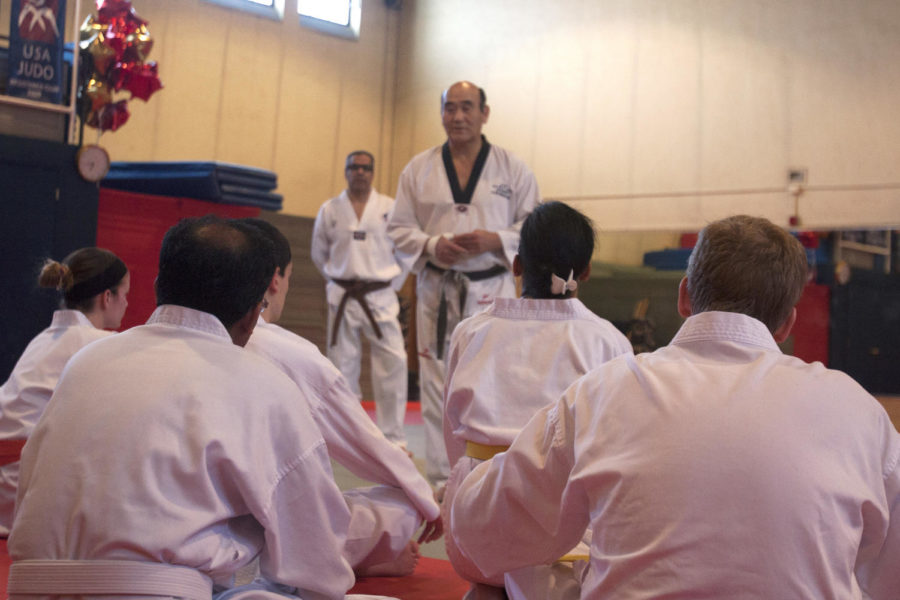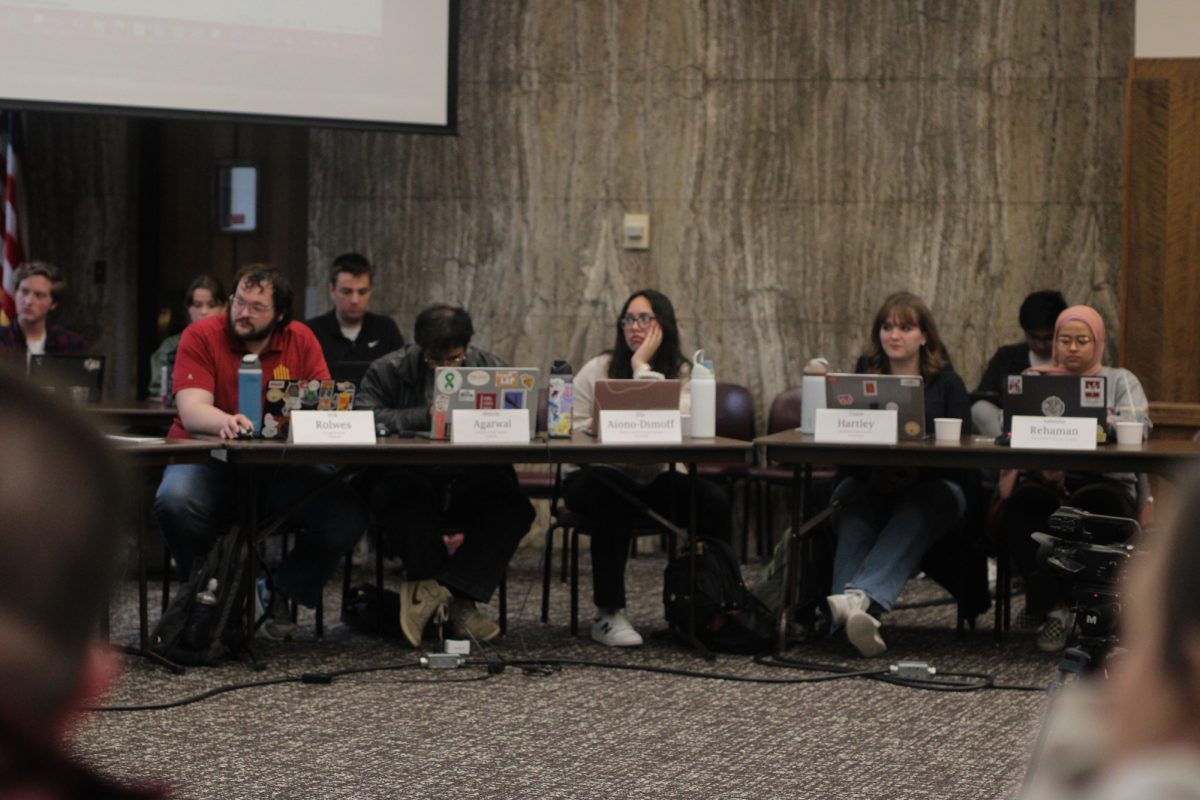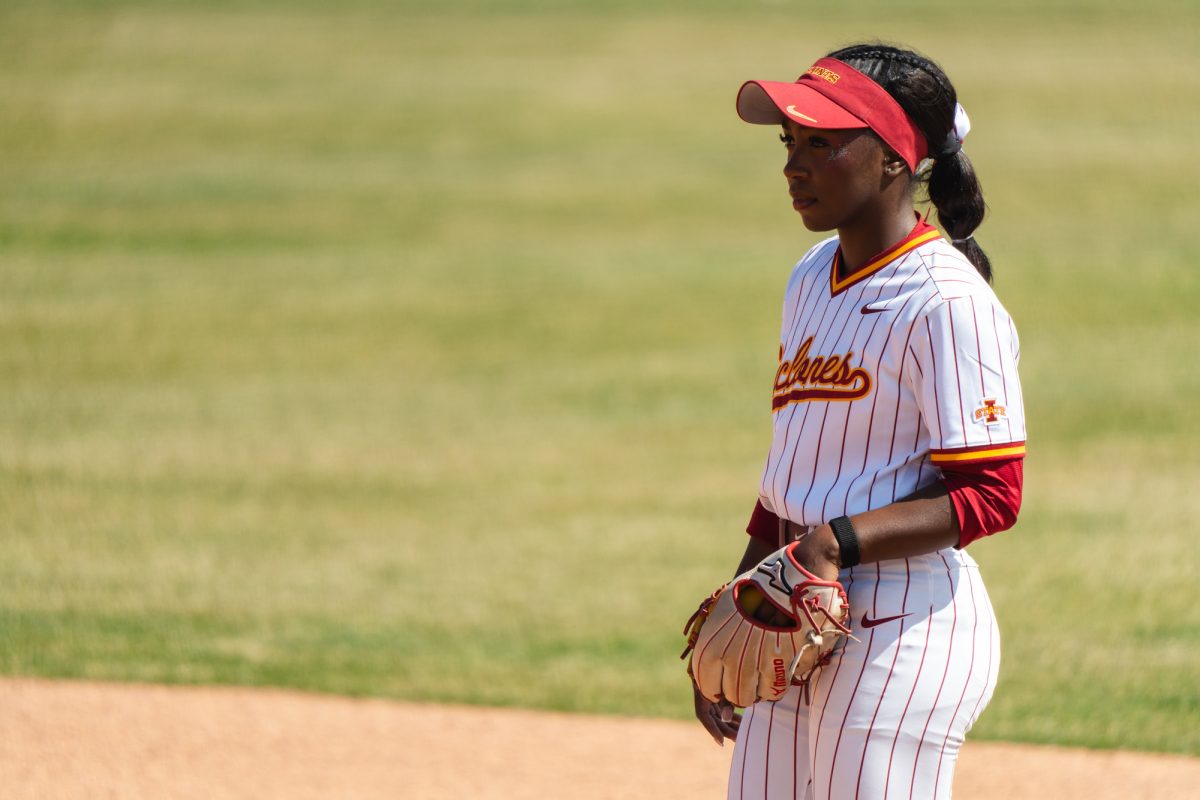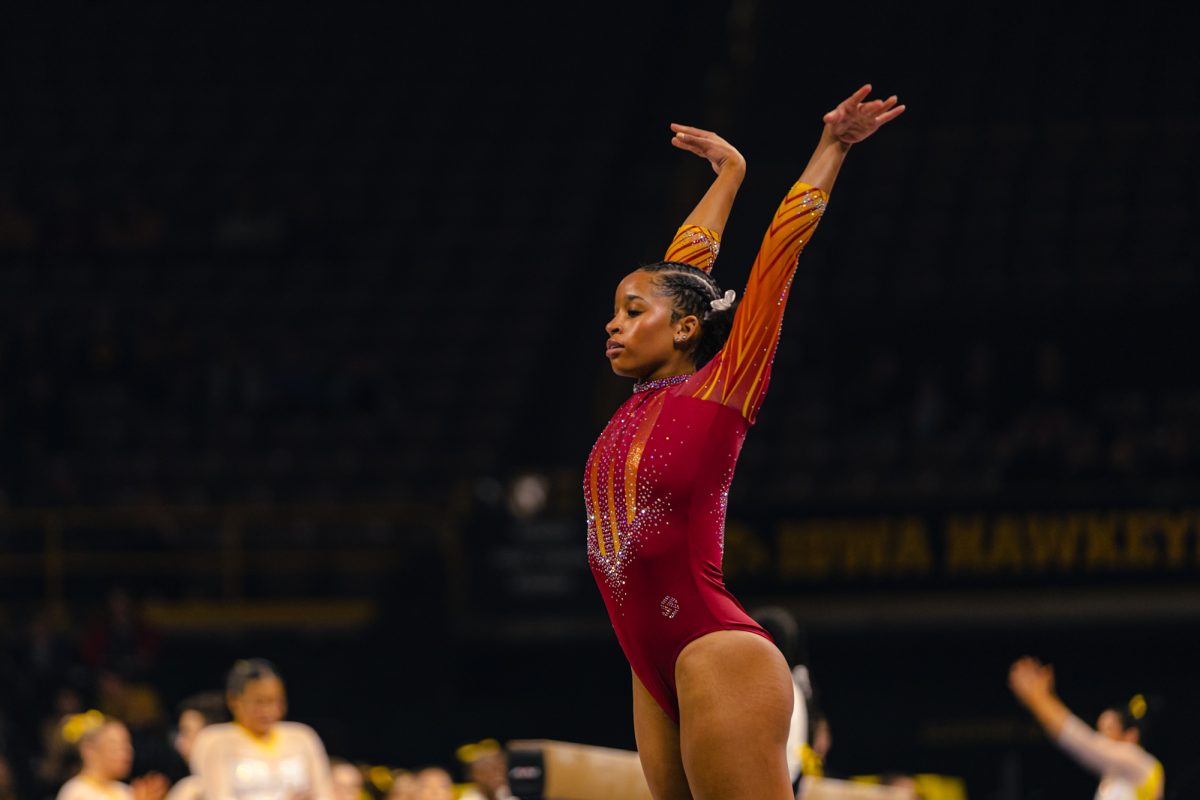Grandmaster Pak says goodbye after 40 years
April 30, 2013
After more than 40 years of service, Yong Chin Pak, commonly known as Grandmaster Pak, will be retiring from Iowa State this coming May.
Pak grew up in Korea as the youngest child of eight. He had five older sisters and two older brothers and, for a while, his childhood consisted of the Korean War.
Pak said during this time, his family did not have much food, and he was not very healthy due to the lack of nutrients he was getting.
In sixth grade, Pak lost both of his parents within three months of each other and he became very ill and weak, as did much of his family. He knew he needed to do something about his health in order to get stronger and essentially stay alive.
Pak started judo, taekwondo and karate in the seventh grade with the support of his third-oldest sister, who practically raised him after his parents’ death. He said his sister had the most influence on him, so having her support was essential to his decision.
Eventually Pak went on to college at the Yong In Un, formerly known as the Korean Judo College. From there, he graduated with a bachelors degree of science in physical education, was elected student government president and continued his training with judo, taekwondo and karate.
The next chapter of Pak’s life consisted of serving as the Korean Secret Service self defense instructor. He said he was honored by this position because when he volunteered to be in the war, they split the soldiers into different positions by qualifications.
Pak said out of the 1,300 soldiers that volunteered, about 500 of them had a lot of martial arts background, and he was one of them. This is what led him to be appointed to the Korean Secret Services.
With extensive background in martial arts, Pak then decided to train for the Olympics. He made the top four in the Olympic trials for his team, and he only had one more round to go to see if he would be attending the Olympics, when he received an opportunity to travel to the United States.
“As a young boy, I had always seen Americans in Korea who were trying to bring us food and things to help our economy. I always asked, ‘Mommy, mommy, who are those people and where do they come from?’ I guess you could say I always had an interest in America and Americans. I had a dream to travel to the U.S. to see for myself,” Pak said.
“So one day, I went to the embassy and I asked them how I could get to the United States. They gave me some forms, I filled them out and with my knowledge and success with martial arts, I was approved to go to the U.S. just five months before the Olympics.”
Pak said although he could have stayed in Korea to finish what he had started, he knew this was a dream he had always had, and he wasn’t sure if he would ever get the chance again.
“So I took the opportunity and I didn’t look back,” Pak said.
When Pak arrived in the United States, he first settled in Hawaii where, after only two or three weeks, he secured a job teaching martial arts at a high school.
Then, after six to eight weeks of teaching there, he received another offer that moved him to Omaha, Neb. where he taught at St. Mary College for about a year.
It wasn’t until 1973 that a position opened up at Iowa State. Pak said he knew Iowa State had one of the best wrestling programs at the time and had a strong base as a college.
He said he was still young, only 25, when he moved to Iowa, so he had a lot of excitement and optimism about helping the martial arts program grow on Iowa State’s campus.
Pak said the first two years were rough and slow, but by 1975 the program started to grow. With the program growing, he had no reason to look for another job or location, so this job ended up leading to a 40-year home and career for Pak.
Since Pak has been on Iowa State’s campus, he has taught over 35,000 students from Iowa State alone.
He has received numerous awards such as the National Collegiate Taekwondo Association Coach of the Year award, the Amoco Outstanding Teachers award and the Dr. Martin Luther King Community award.
“Right now, there is no difference from between 2013 and 1973,” Pak said. “I have gotten many awards and have heard a lot of thank yous, but to me, it’s just my job. I am doing what I love to do, hoping that I can teach others to love it as much as I do.”
Pak said that when one becomes a part of the team at Iowa State, everyone else becomes family. Everyone looks out for each other and takes care of each other.
Timothy Wiegand, former ISU student and martial arts team member, is an example of the kind of family that is created and the influence Grandmaster Pak has had on students’ lives.
Wiegand attended Iowa State in order to train with Pak along with his wife, formerly known as Bonnie Harrison.
In 1994, Wiegand was diagnosed with cancer. When he went to the health center they found a mass behind his heart and he had to undergo chemotherapy. However, even while going through chemotherapy, he finished his classes, trained and fought at the team trials.
“I was sick when I was training, really sick, but no one treated me so. I was still a member of the team, of the family,” Weigand said. “With the support I got from the group and Grandmaster Pak, I was able to push forward and fight two battles at once.”
Weigand said that Pak could have been making a lot of money from the knowledge he holds about martial arts. Pak is one of only 150 people in the United States who holds as high of ranking as he does.
“He’s a remarkable man. He doesn’t charge hardly anything. All he cares about is having a positive influence on people’s lives,” Weigand said. “He teaches more than just moves; he teaches confidence, support, friendship, optimism and how to work together.”
Though Pak has accomplished many things in his life such as being a self-defense instructor for the Iowa Law Enforcement, the Ames Police Department and ISU campus security, to him, he is just doing what he loves.
“My dream after coming to America was just to see students turn out well, get good grades and hopefully be professionally successful,” Pak said. “If all this life is about is money, then we are in a living hell. Life is about much more: It’s about spending time with family and really knowing what is important.”
After retirement, Pak said he hopes to continue to teach, whether that is with children and women, or continuing work with the police. He said his nature is to teach, so though he will be retired, he wants to continue.
“Iowa State University and the Ames community have given me this opportunity and made this part of my life possible, so I want to say thank you,” Pak said. “Without all of the support, I would not have been able to endure this great experience while getting married and having two kids, so again, thank you.”







